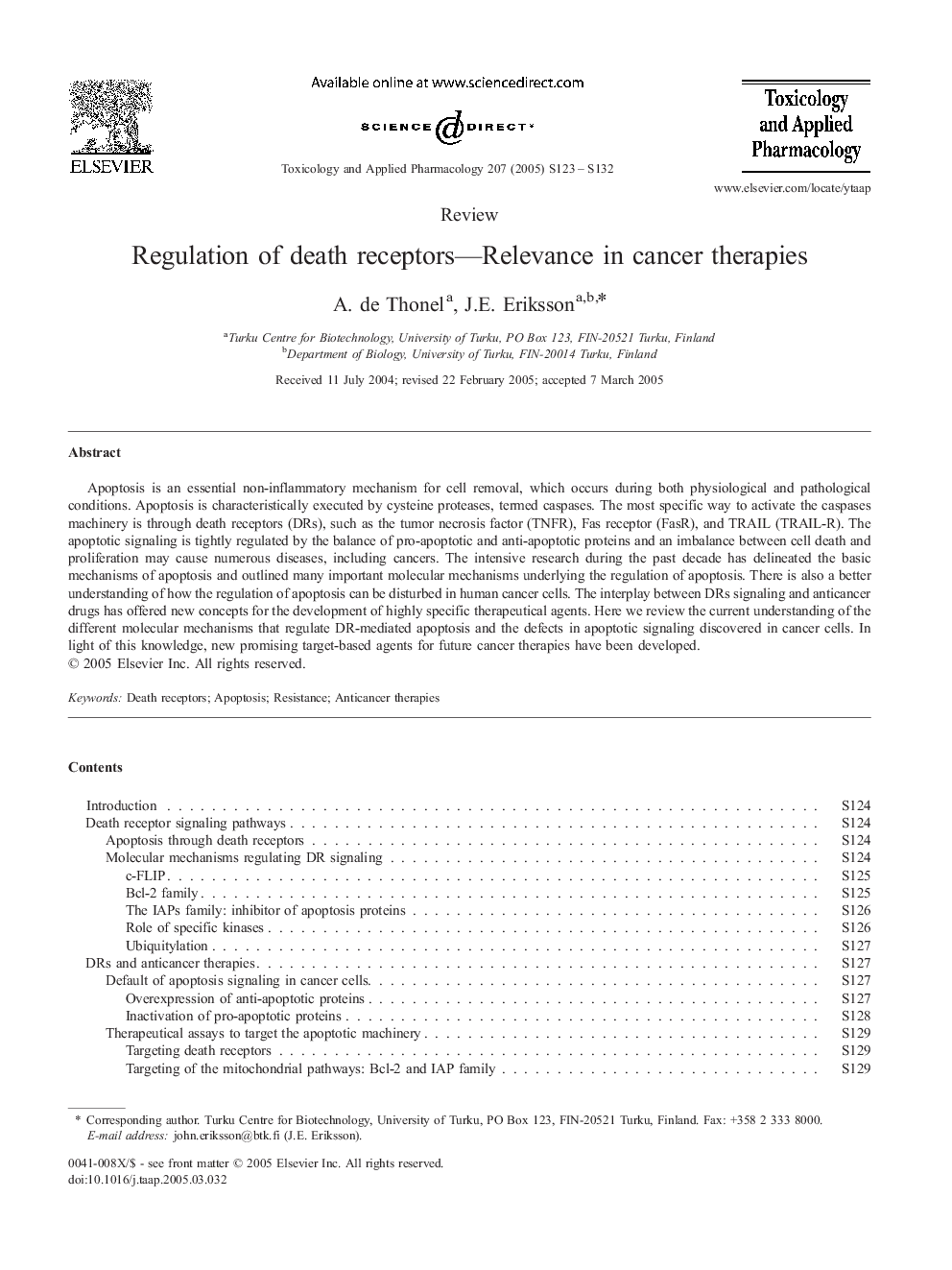| کد مقاله | کد نشریه | سال انتشار | مقاله انگلیسی | نسخه تمام متن |
|---|---|---|---|---|
| 9017729 | 1128665 | 2005 | 10 صفحه PDF | دانلود رایگان |
عنوان انگلیسی مقاله ISI
Regulation of death receptors-Relevance in cancer therapies
دانلود مقاله + سفارش ترجمه
دانلود مقاله ISI انگلیسی
رایگان برای ایرانیان
کلمات کلیدی
موضوعات مرتبط
علوم زیستی و بیوفناوری
علوم محیط زیست
بهداشت، سم شناسی و جهش زایی
پیش نمایش صفحه اول مقاله

چکیده انگلیسی
Apoptosis is an essential non-inflammatory mechanism for cell removal, which occurs during both physiological and pathological conditions. Apoptosis is characteristically executed by cysteine proteases, termed caspases. The most specific way to activate the caspases machinery is through death receptors (DRs), such as the tumor necrosis factor (TNFR), Fas receptor (FasR), and TRAIL (TRAIL-R). The apoptotic signaling is tightly regulated by the balance of pro-apoptotic and anti-apoptotic proteins and an imbalance between cell death and proliferation may cause numerous diseases, including cancers. The intensive research during the past decade has delineated the basic mechanisms of apoptosis and outlined many important molecular mechanisms underlying the regulation of apoptosis. There is also a better understanding of how the regulation of apoptosis can be disturbed in human cancer cells. The interplay between DRs signaling and anticancer drugs has offered new concepts for the development of highly specific therapeutical agents. Here we review the current understanding of the different molecular mechanisms that regulate DR-mediated apoptosis and the defects in apoptotic signaling discovered in cancer cells. In light of this knowledge, new promising target-based agents for future cancer therapies have been developed.
ناشر
Database: Elsevier - ScienceDirect (ساینس دایرکت)
Journal: Toxicology and Applied Pharmacology - Volume 207, Issue 2, Supplement, 1 September 2005, Pages 123-132
Journal: Toxicology and Applied Pharmacology - Volume 207, Issue 2, Supplement, 1 September 2005, Pages 123-132
نویسندگان
A. de Thonel, J.E. Eriksson,